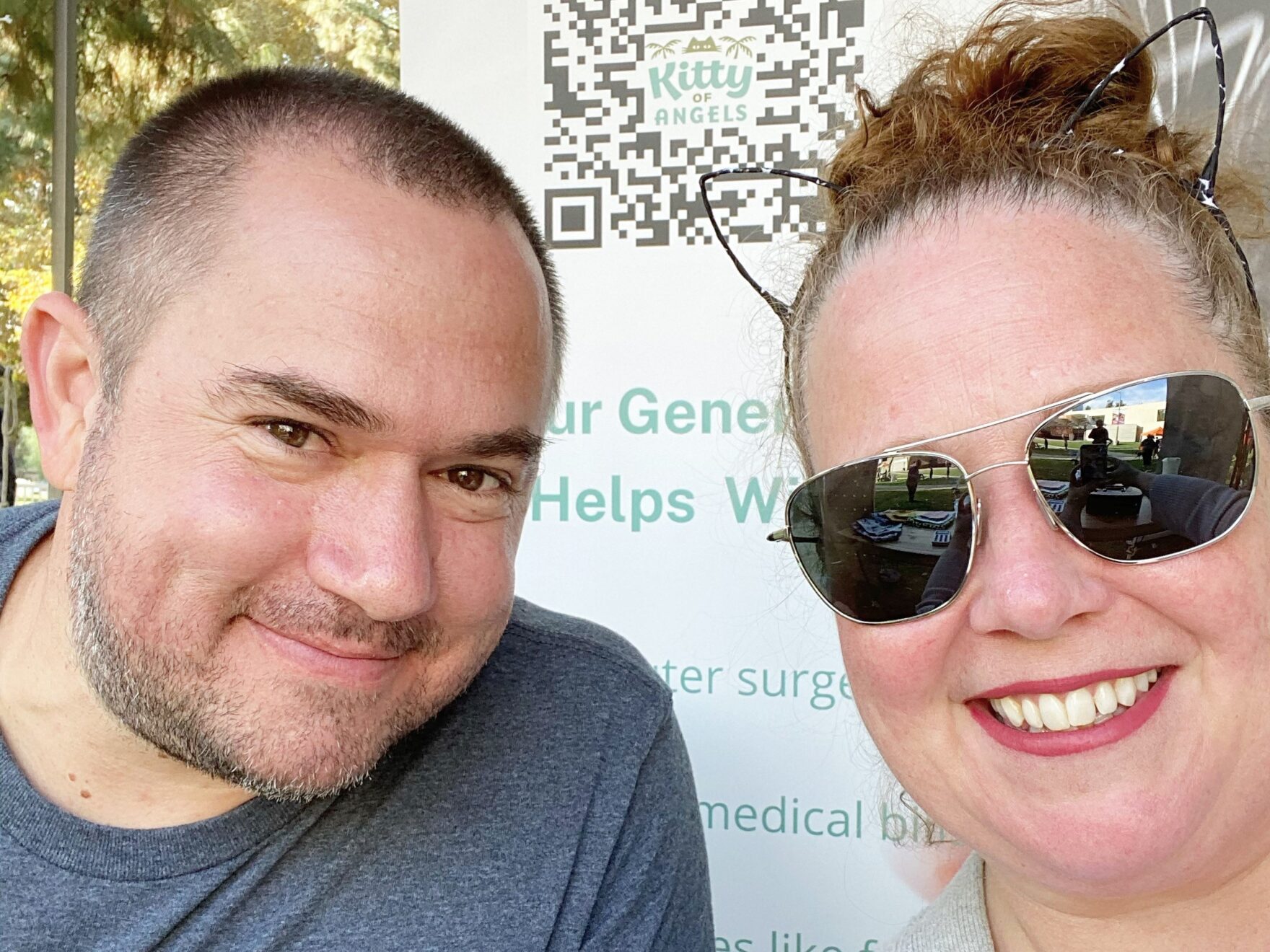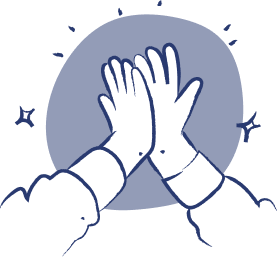Human Herpes Virus-6 (HHV-6) Encephalitis Lived Experience – Lizzie’s Story

I don’t remember the moment things started going wrong—because, well… that’s kind of the problem. What I do know is pieced together from what doctors, friends, and family told me after the fact.
Before my brain decided to hit the eject button on my memories, I had a life that made sense. I ran an animal rescue that I had started years before. It was busy and, at times, chaotic. I had my routines – work and home ones. I knew what I was doing (most of the time). I could tell you where I left my keys. I could tell you who the actor on the screen was and his entire filmography. My memory was actually my superpower.
And then, one day, it was gone.
It started off as what we thought was just a cold. I was struggling a little, but nothing out of the ordinary. Then I woke up one morning and felt really nauseous. I went to text my husband, who had left for work, and saw that I had just text him a few minutes before. But I didn’t remember texting him. And that really scared me.
He took me right to the emergency room. I remember none of this, but they admitted me and started testing – MRI, EEG and….a spinal tap (lumbar puncture). Turns out, I had encephalitis (from the human herpes virus -6 (HHV-6) to be exact), which—because my brain wasn’t cooperating—I had to Google several times later just to fully grasp what had happened to me. “Is encephalitis a brain injury?” Why yes, Lizzie, it is…
Here’s the deal: Encephalitis is inflammation of the brain. It can be caused by infections or autoimmune responses. It can mess with your memory, cognition, speech, movement—you name it. And in my case? My brain basically said, “We’re gonna go ahead and erase some files, cool?”
Spoiler: It was not cool.
Waking up and realizing you don’t remember parts of your own life is deeply unsettling. It’s not like forgetting where you parked or blanking on a name. It’s like trying to recall something that should be there, but instead of finding it, you’re met with… nothing. Just static. My husband had to tell me that my father had died (several years before). And he had to keep telling me because I kept forgetting and asking. And every time, he was met with a barrage of tears. I honestly can’t say enough how glad I am to have my husband. Talk about a rock.
I had gaps where memories should have been. I knew things, but I didn’t know them. Some details came back in flashes, others didn’t come back at all. And the worst part? I didn’t feel like me.
Memory loss isn’t just about forgetting—it’s about losing the connection to your own experiences. And if you can’t remember the things that made you who you are, does that change you?
For a while, I didn’t have an answer to that.
Recovering from encephalitis is not like a dramatic movie moment where you suddenly remember everything while emotional music swells in the background. It’s more like trying to put together IKEA furniture without instructions. Some things snap back into place. Others? Well… they might always be a little wobbly.
I have to relearn my own routines and likes. How do I style my hair? Why do I use this toothpaste and not a different one? I have to write things down. I rely on iPhone notes, reminders, and patient people who reassure me that I had done this before—that I will do this again. But some things are just… gone. And I have to make peace with that.
One of the hardest parts? Feeling like a stranger to my own life.
When you don’t recognize parts of your past, it’s easy to feel unmoored—like you’re living in someone else’s story. People would bring up things we’d done together, inside jokes, or shared experiences, and I’d have to smile and nod while thinking, I believe you, but I don’t remember this at all. My husband would tell me about decisions I’d made and I’d say “that doesn’t sound like me at all…” It was confusing.
Encephalitis changed me. Not in a dramatic, “reborn” kind of way, but in a practical way. At this point (January 2025), it’s been six weeks since my diagnosis and treatment. Some things are still hard. Some days, my brain is foggy. I’m tired a lot. And yeah, I still forget things more often than I’d like.
But here’s the thing: I’m still me.
I will have to rebuild parts of my life, but that doesn’t mean I lost who I was. I just have to find new ways to connect to it. Some memories might be gone forever, but I’m still here, moving forward, making new ones. And honestly? I think that’s what matters most.
If you’re dealing with memory loss, brain fog, or the deeply frustrating experience of feeling like a stranger to your own life, listen up:
You are still you.
Even if you forget things. Even if you don’t feel like yourself. Even if your brain throws you curveballs every day. You will find your way back.
Be patient with yourself. Give yourself grace. And don’t be afraid to ask for help. You don’t have to do this alone.
Please contact us if you would like support with encephalitis.
Story published May 2025
Get help
Our support team are available from 9am to 5pm (GMT), Monday to Thursday, and 9am to 4.30pm (GMT) on Fridays.
To get in touch, simply call +44(0)1653 699599.
Contact our helpline
